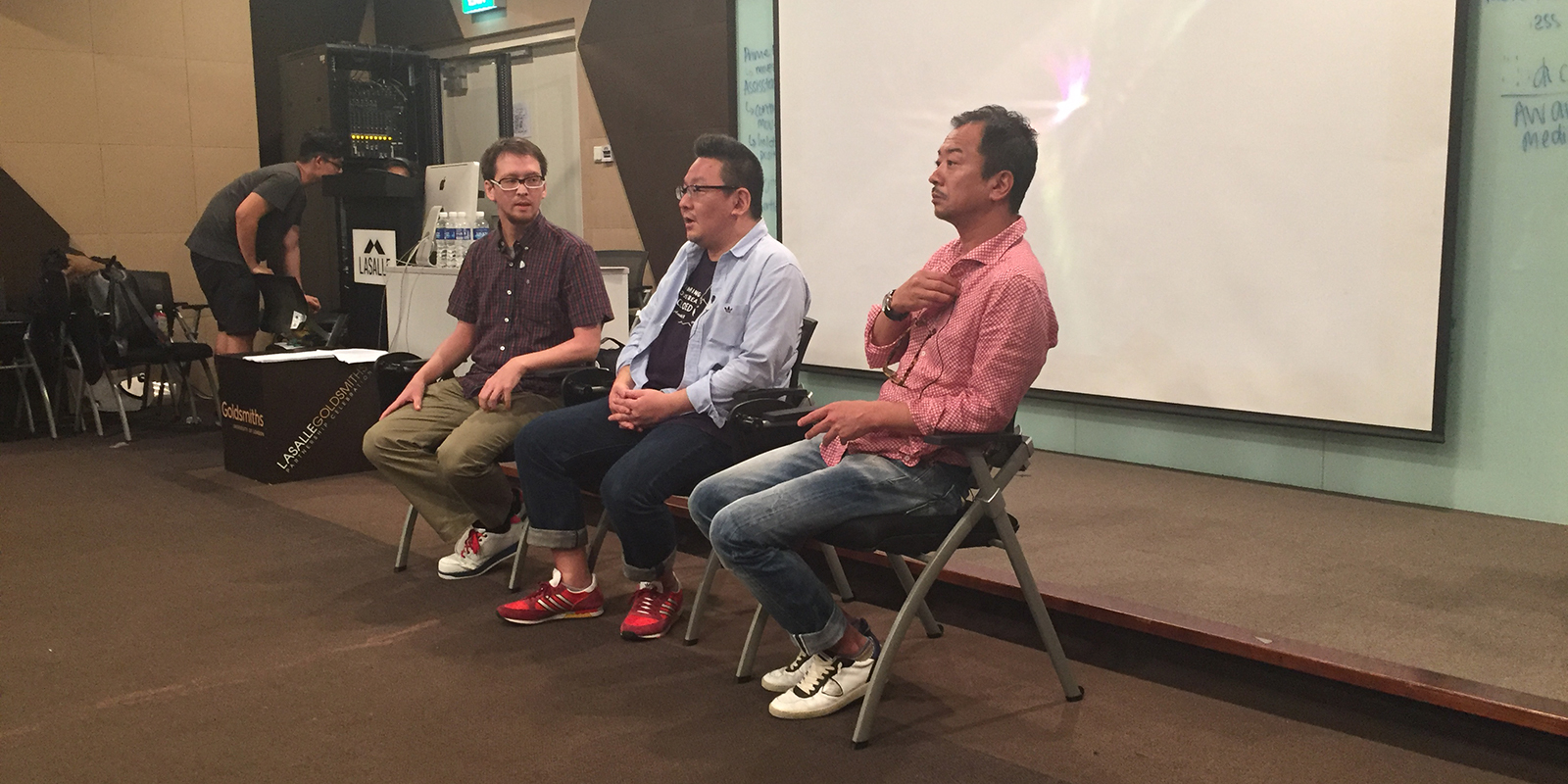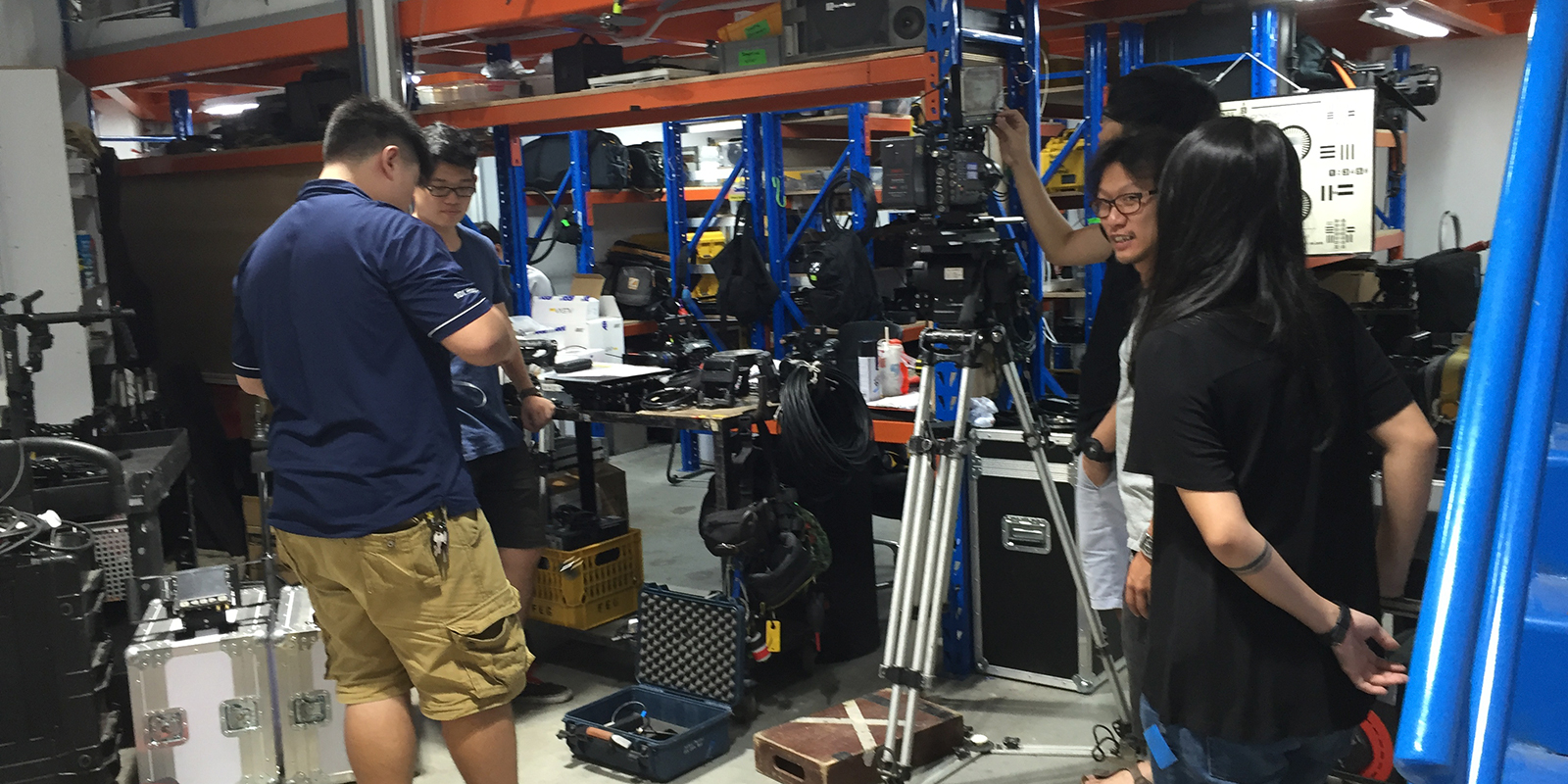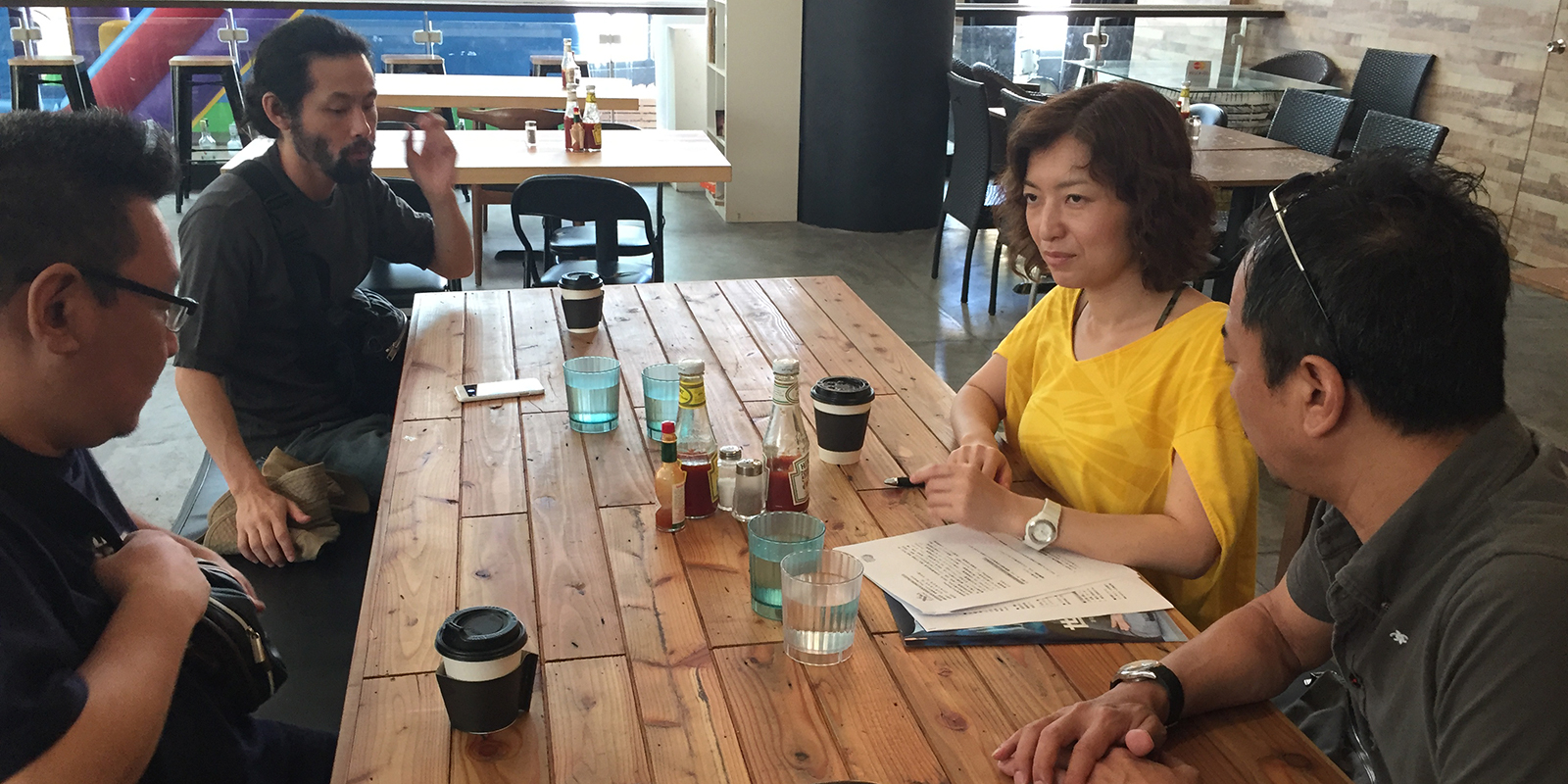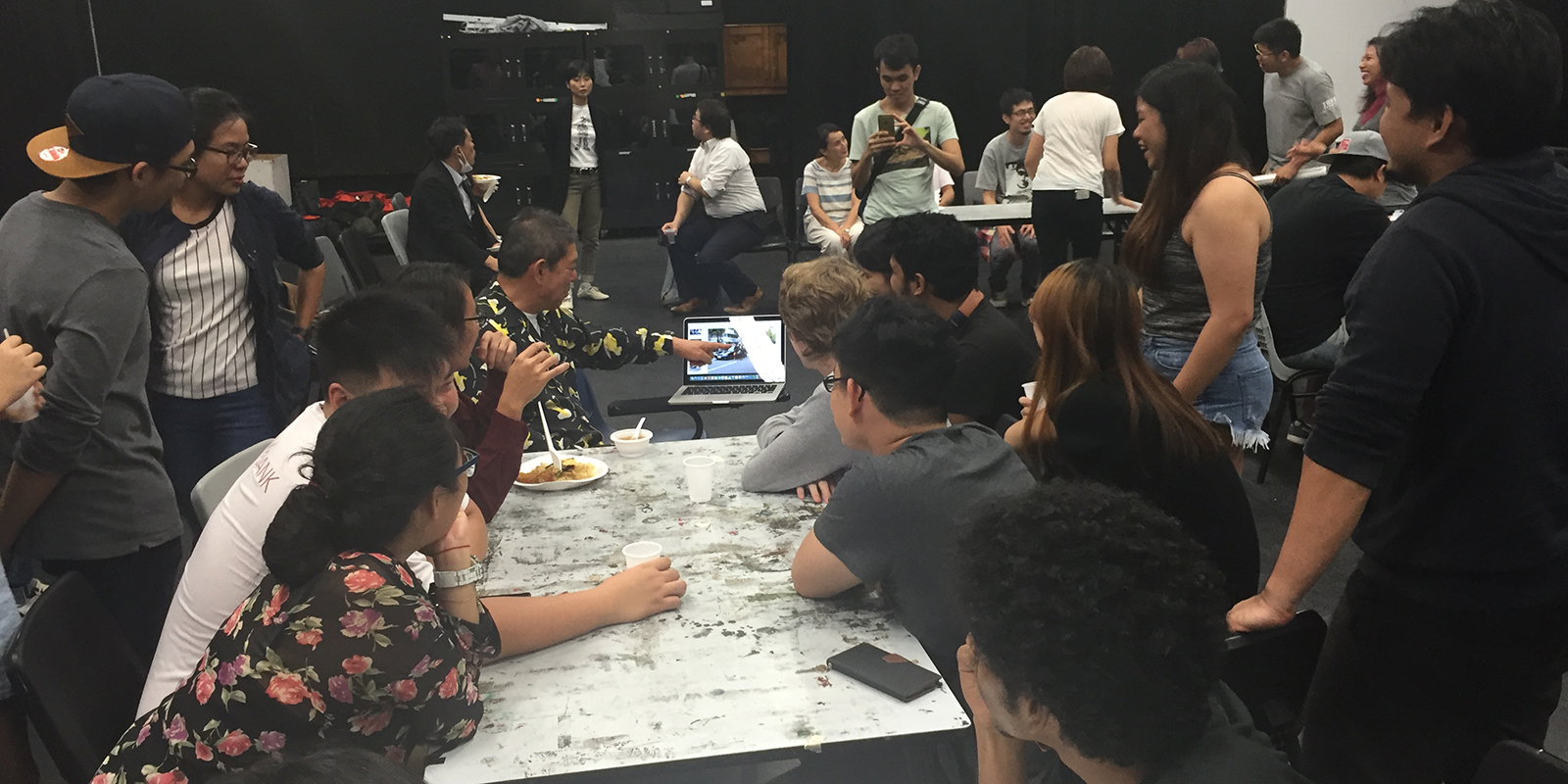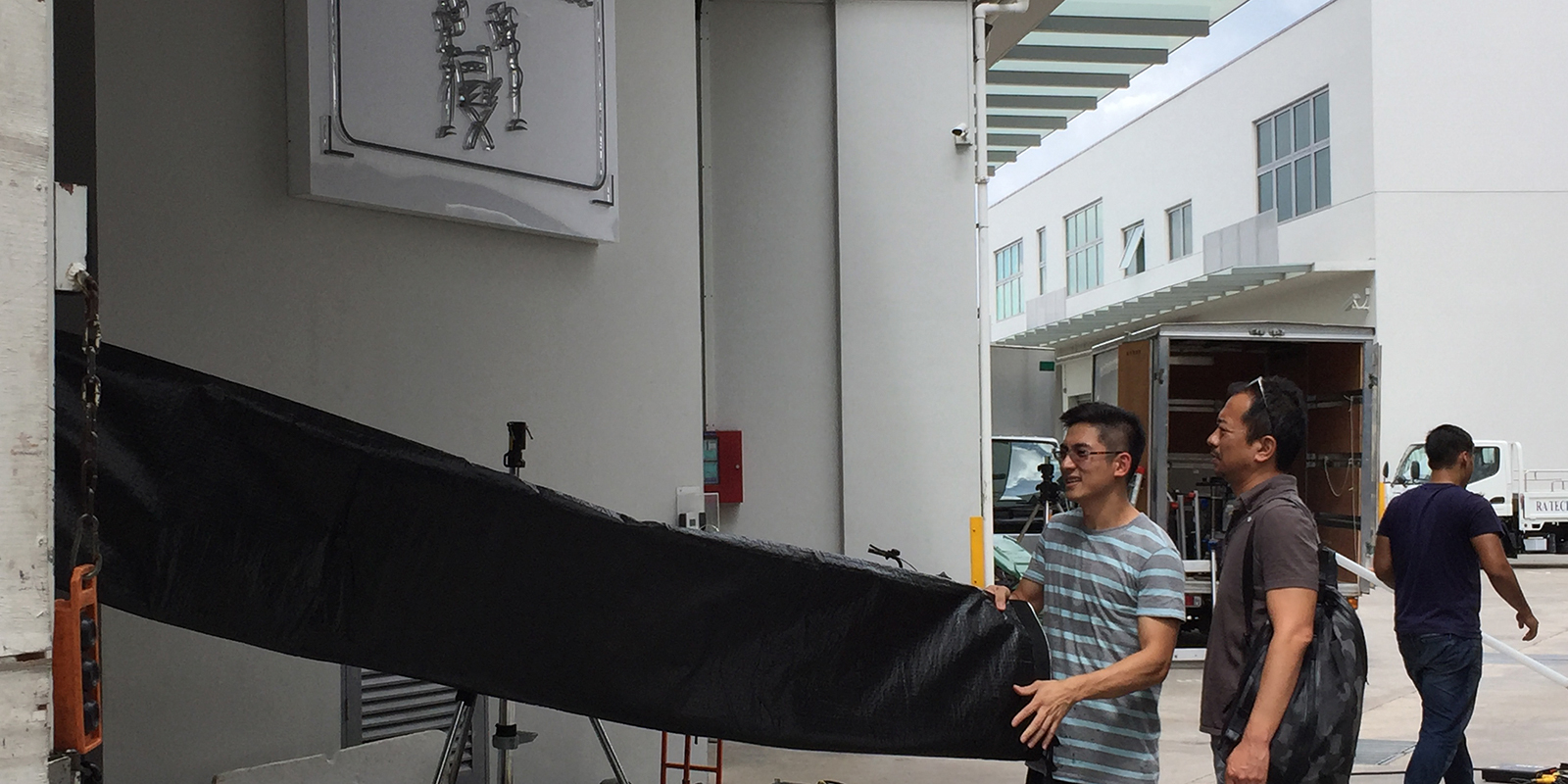Background and Purpose
The post-production may be the most impacted matter by recent digitalization of the process of filmmaking. It’s no exaggeration to say that recent films mostly include any digital processing such as color grading even though it cannot be apparently seen. In addition, the material for filmmaking has been increased while the number of takes has been increased per cut for editing work due to the spread of the digital filmmaking. There is an opinion that the editing work has been extremely more than before. As a result, it takes more time for the post-production.
This also means that the importance of the post-production has been more than the film period on the entire films. The importance of shooting phase is still same however the editing work in the post-production has been more important than before in the digital cinema, such as how we modify the shooting material, which material we select from a large amount of the shooting material, and what kind of story we structure.
However, we have to say that the awareness of its importance is lower than the others by comparing with visual effects such as VFX which is apparently easy to understand in the post-production even though it is at an important position which is directly related to the quality or evaluation of the entire films.
With such situation as background, we decided to focus on the film “editing” in this program and hold a master class by Mr. Ryuji Miyajima who is an editor of films. We aimed at directory handing over the philosophy of film editing and the editing skills which support current Japanese films, which Japanese films have been developed over many years, to young filmmakers in Singapore and further provided an opportunity to show the film by Mr. Miyajima, which has not been screened in Singapore before.
With the theme of this program, “Integration of current editing expression skills into sense of young film filmmakers in Asia”, we aimed at establishing the master class in which we stimulate their creativity while offering a deep comprehension to Japanese films for young people in Singapore through communication with actual editors who successfully work as a leader for Japanese cinema.
“Editing” is a behavior to freely create a meaning by change the connection of cuts. There are some portions depending on the cultural background about what kind of feeling the editor implies to the work and what king of meaning the audiences feel from it. The discussion about “editing” is an effective method to understand the cultural differences and similarities. This program aimed at promoting the cultural understanding at a deep level by specifying to “editing” films.
For this implementation, we followed the theme above, included students in LASALLE College of the Arts that is a popular art college in Singapore, and had full cooperation from the college as well as the animation program described later in Chapter 3. LASALLE College of the Arts (the initial name as the establishment was Patrick’s Arts Centre and it was revised to current name next year, 1985) established in 1984 is a non-profit private college conducting educational trainings of the latest modern art and design and offers 31 of various courses including fine arts, movie, animation, fashion, music, and art therapy in the undergraduate as well as the graduate school. This film master class involved students as participant who are belong to the Faculty of Media Arts of the college.
Implementation Structure
| Japanese Side | |
|---|---|
| Lecturer | Ryuji Miyajima (Film Editor / Lecturer Tokyo University of the Arts) |
| Director | Syogo Yokoyama (Research Associate, Tokyo University of the Arts) |
| Assistant Director | Yuko Nagoya (Freelance) |
| Interpreter: | Naoki Tanaka (Research Assistant, Tokyo University of the Arts) |
| Program Producer |
Mitsuko Okamoto (Professor, Tokyo University of the Arts) |
| Planning / Operation | Graduate School of Film and New Media, Tokyo University of the Arts |
| General Management | UNIJAPAN |
| Program Supervisor | Takenari Maeda (Director, International Promotion Group) |
| Program Manager | Mayu Honda (International Promotion Group) |
| Singaporean Side | |
|---|---|
| Local Coordinator | Hideho Urata (Cinematographer / Lecturer, LASALLE College of the Arts) |
| Participating Educational Institutio | LASALLE College of the Arts |
Lecturer’s Profile
-
Ryuji Miyajim (Film Editor / Lecturer, Tokyo University of the Arts)
Outline of the Program
《Program Name》
Film Master Class
《Schedule》
Saturday, 28th November, 2015
《Venue》
LASALLE College of the Arts (Meeting Room on the 4th floor)
《Time Table》
10:00-12:00 Film Screening: “Water Boys”(Director: Shinobu Yaguchi / Editor: Ryuji Miyajima / 2001 / 91min.)
12:00-13:00 Lunch
13:00-15:30 Lecture
15:30-15:45 Break
15:45-17:45 Conversation / Question-and-answer Session
18:00-20:00 Wrap up Party
《Participants》
students: 26 persons from LASALLE College of the Arts(Faculty of Media Arts)
《Languages》
Japanese / English (consecutive interpretation)
Details of the Program Contents
《Film Screening》
We showed a film, “Water Boys” (2001) by following the greeting from the directors and the introduction of Mr. Miyajima at the opening. This film brought an opportunity to increase his popularity as skilled person for editing to the film industry. It won the Japan Academy Prize in the year for the Picture of the Year and Mr. Miyajima won the prize for the Out- standing Achievement in Film Editing. Though this was one of the representative films in Japan at the moment, it had not been shown in Singapore; therefore we showed it specially upon the approval of the distribution company on this occasion. The production system mainly employed film editing at that time and this was edited on film as well.
《Lecture》
The lecture after the screening was proceeded by concretely suggesting how the story and film was changing by editing while using the material in a scene of the film which was actually edited by Mr. Miyajima so that students can more deeply understand the importance and potential of editing. His explanation was provided including concrete episodes such as what the purpose in terms of editing was and what kind of conversation was taken with the director behind the scene while partially showing scenes of the other films.
As one method to train the ability to structure required for editors, he also explained the advantage of producing a trailer. The lecture was proceeded while explaining the difference between Japanese version and US version of trailer for “Kill Bill” (2003) directed by Quentin Tarantino, which he was in charge of and including inside stories related to the production.
《Conversation / Question-and-answer session》
A conversation was taken between Mr. Miyajima and Mr. Hideho Urata who is a lecturer of LASSALE College of the Arts and successfully working as a cinematographer. While they were talking about the advantage and disadvantage of the production system in each country such as the difference about filmmaking and how people are involved to editing between Japan and Singapore, they also discussed from the technical standpoint such as the relationship between camera and lighting division and editing division or post-production and what kind of difference occurred in editing in the flow from film to digital.
Q&A includes various questions from general ones related to overall editing to how editors should work or the editing philosophy of Mr. Miyajima. The lecturer as well as students enthusiastically got involved to the discussion.
《Wrap up Party》
After finishing the master class, a wrap up party has been held in the campus with the class of animation field and it offered an opportunity for the direct discussion between the students and Mr. Miyajima. The students actively requested advice about questions or problems they are facing in editing, and the method to solve them. It was impressive that Mr. Miyajima seriously responded to their questions by taking time.
Conclusions
Singapore has a higher educational level especially in the film and animation fields and also has more overseas students in ASEAN countries. The faculty of the universities mainly consists of western foreigners and accordingly, the educational program in Western style is their mainstream. Students have sufficient knowledge about films therefore we could predict that a lecture with general contents related to Japanese films cannot sufficiently stimulate them.
Under such a situation, we decided to hold a master class specified for “editing”, a highly professional area, in the film part of this program in order to focus on the post production process of Japanese films which had not been noticed well enough. In addition, upon co- operation with local coordinators, we obtained questions from students to lecturer in ad- vance and tried to create contents by which we can respond needs from students. We can say that these approaches brought a big success as long as we see the positive feedback form participated students and local staff.
A point to be improved at this moment is that we could not conduct a practical lesson due to the number of people. We can afford to consider an exercise by which students can understand the essence of editing depending on the scheme even though the problems related to devices will remain.
Lastly, if there is the most important key to make this program successful, it should be to develop a trusting relationship and obtain full cooperation with the educational institutions and the companies who will locally support the program. This would be a common issue required not only in Singapore but also in any other countries.
